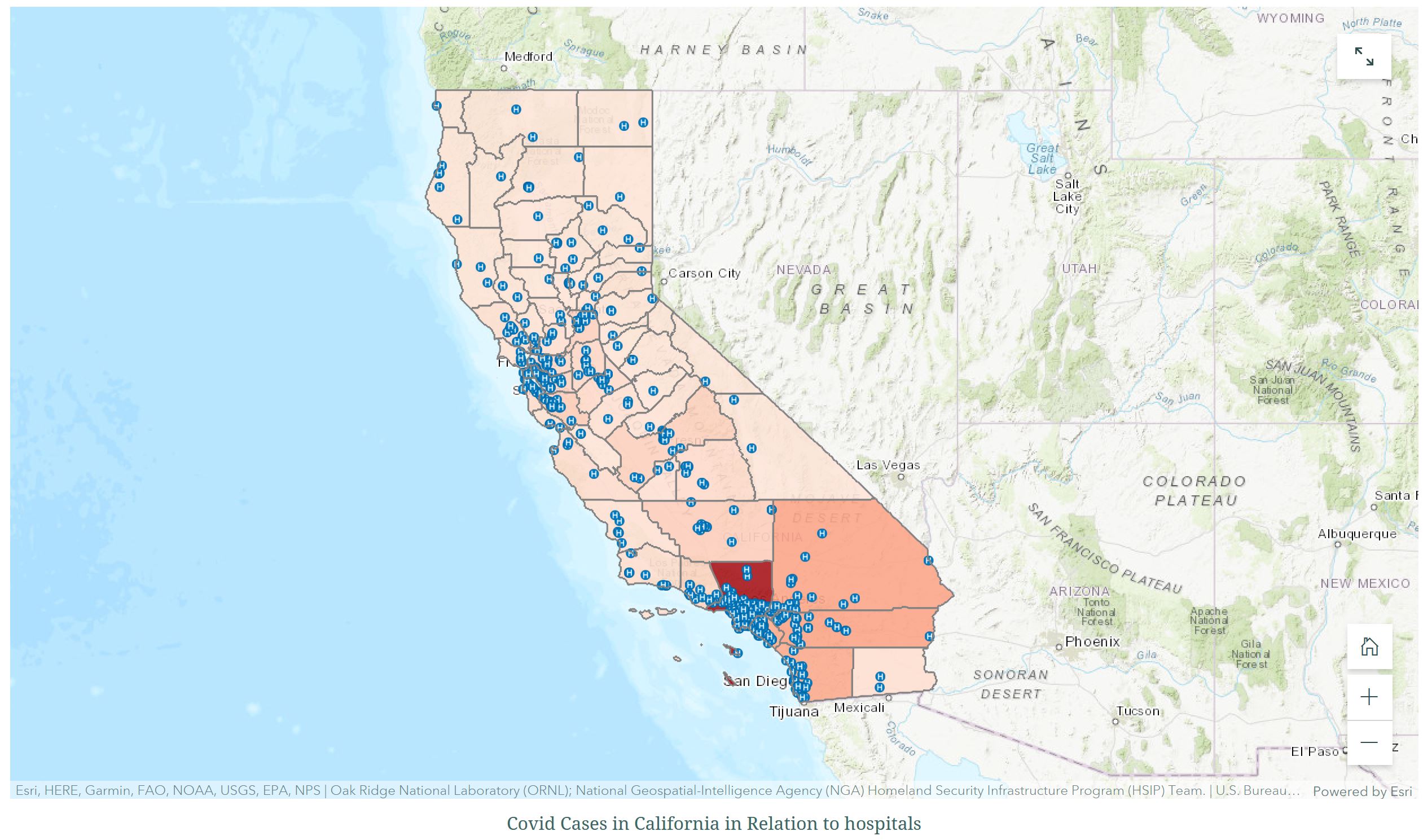
Photo Caption: This data map illustrates the economic effects of COVID-19 on the Latinx community.
Last week, Community Partners and our partners, California State University, Los Angeles, and the City of Los Angeles’ Data Team, hosted the annual Big Data Forum Series as a part of our work with the Big Data Project, a three-year $1M grant funded by the National Science Foundation. The series showcased the work of Cal State LA students and their nonprofit teams’ data maps—online virtual maps that transform data into details one can see and experience. A longtime champion of the bridge between data storytelling and community access, Community Partners project lead and Vice President, Business Development and Strategic Partnerships, Phyllis Owens spoke and celebrated the hard work being shared that night. “Data can be collected and manipulated to tell not just one story, but many. Being open to presenting that data can help you better your nonprofit programs, service delivery and even advocate for the issues in your community that you care about,” said Owens.
The goal of the initiative is to equip nonprofits with increased data capacity, informed decision making and citizen engagement among underserved and marginalized populations through a series of workshops, coursework with service learning opportunities that matches teams of students with nonprofit organizations, paid student internships, and hands-on training in data visualization. This year’s series was particularly significant given the unprecedented circumstances brought on due to the pandemic. Community Partners’ Phyllis Owens and Data Project Manager, Preston Mills, acted quickly to ensure the students and nonprofit projects had a mutually beneficial and engaging experience. “COVID-19 has devastated the very fabric of our lived experiences—all of us. Organizations, businesses, and residents are frustrated by the inequitable and unjust responses to the global pandemic. Many are eager for any information available to contextualize their lived experience,” said Mills. This spring, students partnered with Community Partners projects to illuminate many pressing issues such as the impact of COVID-19 on the Latinx community, the importance of equitable tree canopy distributions, and the need for new policies to protect youth learning near significant pollutants in the Port of Los Angeles.
Learn more by exploring the data maps from the previous years’ NSF Big Data Project’s student projects here.

